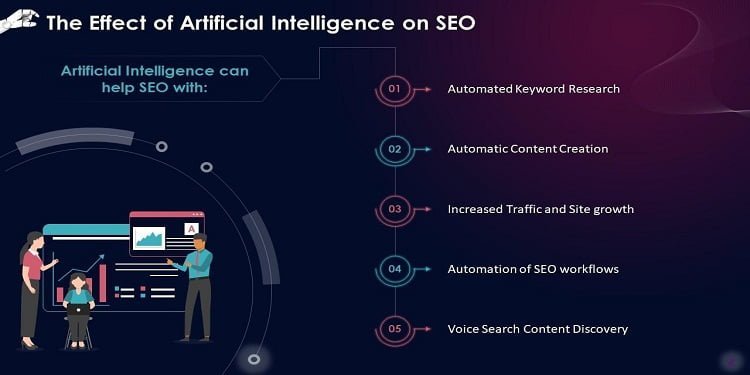Artificial Intelligence (AI) has revolutionized various industries, and one area where its impact is particularly significant is in the field of Search Engine Optimization (SEO). With AI-powered algorithms becoming more sophisticated, search engines are now able to deliver more relevant and personalized results to users. In this blog post, we will explore the ways in which AI is shaping the future of SEO and how businesses can leverage this technology to improve their online visibility.
1. Enhanced User Experience
One of the key goals of search engines is to provide users with the most relevant and useful information. AI plays a crucial role in understanding user intent and delivering personalized search results. By analyzing user behavior patterns, AI algorithms can determine what users are looking for and present them with the most relevant content. This leads to a better user experience and increased engagement, which in turn positively impacts SEO rankings.
2. Voice Search Optimization
Voice search has gained immense popularity in recent years, thanks to the rise of virtual assistants like Siri, Alexa, and Google Assistant. AI-powered voice recognition technology has made it easier for users to perform searches using their voice. As a result, businesses need to optimize their content for voice search to stay ahead of the competition. By incorporating natural language processing and machine learning, AI helps search engines understand and interpret voice queries more accurately, enabling them to deliver more precise search results.
3. Content Creation and Optimization
Creating high-quality and relevant content is the cornerstone of successful SEO. AI has significantly improved content creation and optimization processes. AI-powered tools can analyze vast amounts of data and generate valuable insights to help businesses create content that resonates with their target audience. From identifying relevant keywords to suggesting topic ideas, AI streamlines the content creation process and ensures that it is optimized for search engines.
4. Advanced Data Analysis
AI has the ability to analyze and interpret large volumes of data at an unprecedented speed. This is particularly useful for SEO professionals who need to make data-driven decisions. AI algorithms can extract valuable insights from website analytics, keyword research, and competitor analysis, enabling businesses to fine-tune their SEO strategies. By leveraging AI-powered data analysis, businesses can gain a competitive edge and stay ahead of the ever-evolving search engine algorithms.
5. Automation of Repetitive Tasks
SEO involves various repetitive tasks such as keyword research, on-page optimization, and link building. These tasks can be time-consuming and tedious. AI-powered tools can automate these processes, freeing up valuable time for SEO professionals to focus on more strategic activities. By automating repetitive tasks, businesses can improve their efficiency and productivity, leading to better SEO results.
6. Personalized Search Results
AI algorithms have the ability to understand user preferences and deliver personalized search results. This means that search engine rankings are no longer solely based on generic factors like keyword relevance and backlinks. Instead, search engines take into account factors such as user location, search history, and browsing behavior to provide customized results. Businesses can leverage this personalization to tailor their SEO strategies and target specific audience segments more effectively.
Conclusion
Artificial Intelligence has undoubtedly had a profound impact on the field of Search Engine Optimization. From enhancing user experience to automating repetitive tasks, AI is transforming the way businesses approach SEO. As AI technology continues to evolve, it is crucial for businesses to adapt and leverage its power to stay competitive in the ever-changing digital landscape.



